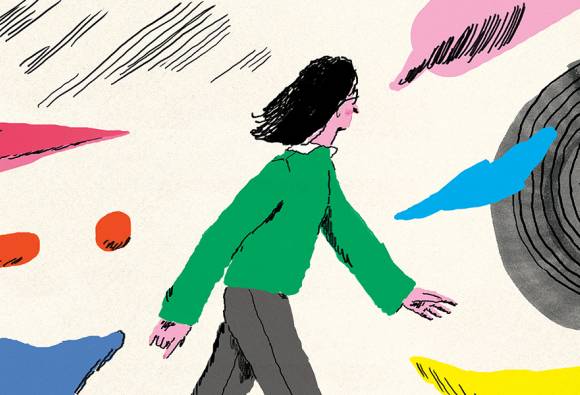
Fabula literary evening: Kapka Kassabova – Border
The border zone between Bulgaria, Turkey and Greece is an uncharted, little-known corner of Europe. The untamed nature acts as silent witness to the turbulent history of these places, from Roman times, when Ovid was banished to deepest Romania, to the dissolution of the Ottoman Empire, the Cold War, and the latest wave of refugees fleeing conflict through the forests of Strandzha. Crisscrossed by ancient Roman roads, this edge of Europe is a region that has been shaped by the successive forces of history; in this same area, the mountaintops – dotted with monasteries – served as tombs for Thracian kings, and were home to psychic healers and Europe's last fire-worshippers. As well as moving between different worlds, between continents and political systems, the author explores the boundaries between the real and the intuitive, between the conscious and the unconscious. Exploring this enigmatic landscape in the company of smugglers, treasure hunters, forest guards, inhabitants of disappearing villages and refugees, Kassabova traces the physical and psychological borders that criss-cross the region’s villages and mountains, and goes in search of the local stories that will unlock its secrets.
The novel has been translated by Petra Meterc.
Kapka Kassabova (1973) spent her childhood in Bulgaria, and emigrated with her family to New Zealand in 1992. She now lives in Scotland. Her works explore the relationships between places and people, geopolitical margins, cultural junctions and crossroads, most often in the Balkans. An award-winning author of nine prose works, Kassabova has published four collections of poetry and is a regular contributor to various newspapers and magazines, including The Guardian and The Times Literary Supplement. Her works have been translated into more than twenty languages.
The talk will take place in English, with simultaneous translation into Slovenian.
Fabula literary evening: Kapka Kassabova – Border


 Literatures of the World – Fabula Festival
" width="580" height="395">
Literatures of the World – Fabula Festival
" width="580" height="395">
